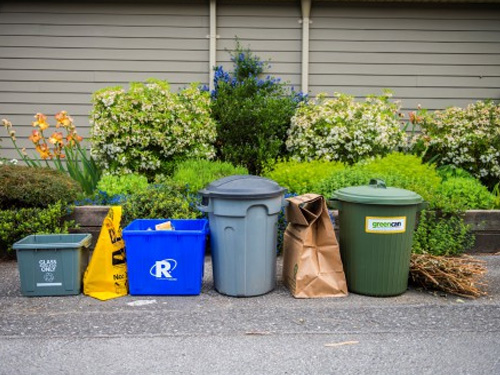PERIMETER BLOG
LATEST NEWS & INTERESTING FACTSIt was bright and sunny here in the lower mainland last week. People in my neighbourhood flocked to the streets to walk their dogs, play in the parks, wash their cars (with environmentally friendly soap I trust) and generally enjoy the fresh air in one of the most beautiful places on Earth.
On one day in particular, I was returning from a quick-paced walk with my two dogs when all that peaceful energy was shattered like a ton of recyclable cardboard had just been dropped on my head.
“Hey, hey, are you -“ the questioner looked at a previously crumpled-up envelope before adding, “Kevin? I mean Kelvin?”
It was then I noticed a shiny new piece of paper had been attached to every front door on my street.
I got a bad feeling in my gut.
“I am, how are you?”
“We need to talk to you. I mean, good thanks. But we need to talk to you.”
The questioner introduced himself as a local member of council (or something), and asked if I knew how to recycle. Why yes, I take great pride in recycling and lowering my impact on the environment I told him.
“You’ve heard of Perimeter Drainage I trust? Yeah, well, I blog for them, so I think I know a thing or two about recycling.”
However, my bravado was short-lived. Apparently I didn’t sort my recycling properly and a small plastic bag had stowed away inside a broken down cardboard box.
“The city will revoke our recycling privileges,” I was told.
“I highly doubt that,” I replied. This was not the response desired by the council member. It was at this moment my dogs spotted a neighbourhood cat that was clearly hell-bent on exacerbating the situation and started to howl and attempt to amputate my arms at the shoulder.
The Privilege of Recycling
Let’s get serious for a moment. Neither of us handled this situation well at all. I don’t think I deserved to be halted in the street. I mean, my door had a notice on it. A notice!
Wouldn’t that suffice?
I take great pride in recycling. I’ve learned a lot about minimizing one’s impact on the environment since I started working at Perimeter. What started as a campaign focused on construction waste management has evolved to include recycling practices at home as well, because people who make eco-conscious decisions on the job site should be making eco-conscious decisions at home, right?
Right.
As I later vented about this confrontation, my primary complaint was that there are countries in the world who simply toss their waste out the window.
It wasn’t until later when my frustration subsided and the swelling in my shoulders receded that I realized how asinine this comment was.
Recycling is a privilege. It’s one we pay for through our taxes, and it’s a municipal service that’s certainly not perfect yet, but we shouldn’t be taking it for granted. It’s difficult to understand the instructions on most municipal recycling bins. What constitutes a container? Can lids be recycled? Clearly defined accepted materials is a facet of municipal recycling that could certainly stand to improve.
We live in this part of the world at least in part because we have access to services like recycling and garbage removal and running water. It’s up to us, the people served by council members and politicians, to make sustainable choices before we’re hunted down in the street.
The primary point of contention on that fated day was that plastic bags were not permitted in any of my neighbourhood’s recycling bins, and I had disobeyed the rules. Unwittingly, mind you, but unwittingly is not an acceptable excuse. From the perspective of the council member, I was either threatening our neighbourhood’s recycling program or I was threatening his position in office because a new recycling program would cost us all more and costing people more money is no way to win a seat in council.
Either way, I’m over it.
I swear.
….
By the way I recycled the notice that was on my door. The council member saw me do it too. Maybe because I phoned him up and invited him along for the event and stared him in the eyes the whole time.
Alright, seriously, I’m over it.
Separate your recycling properly, people!

